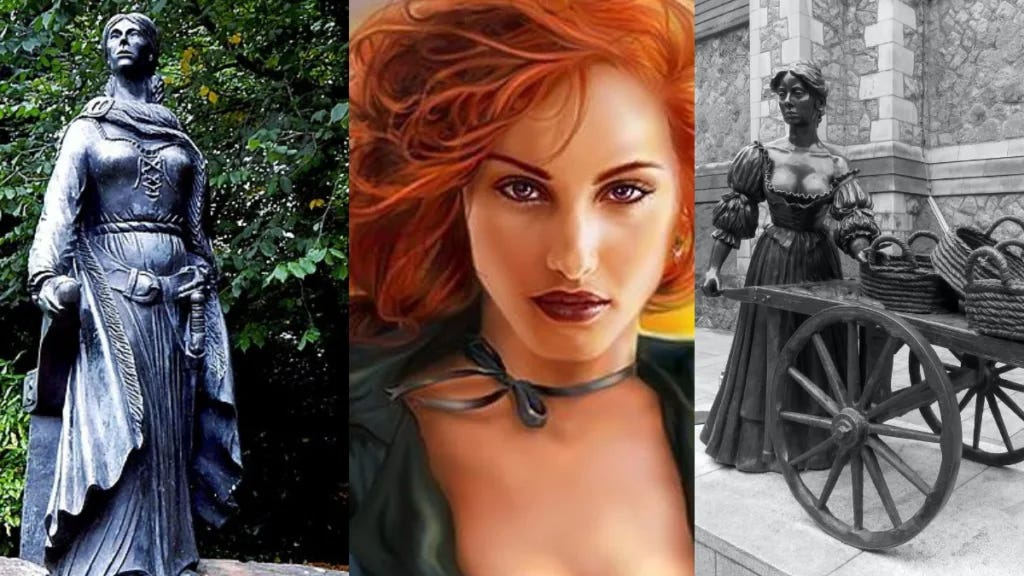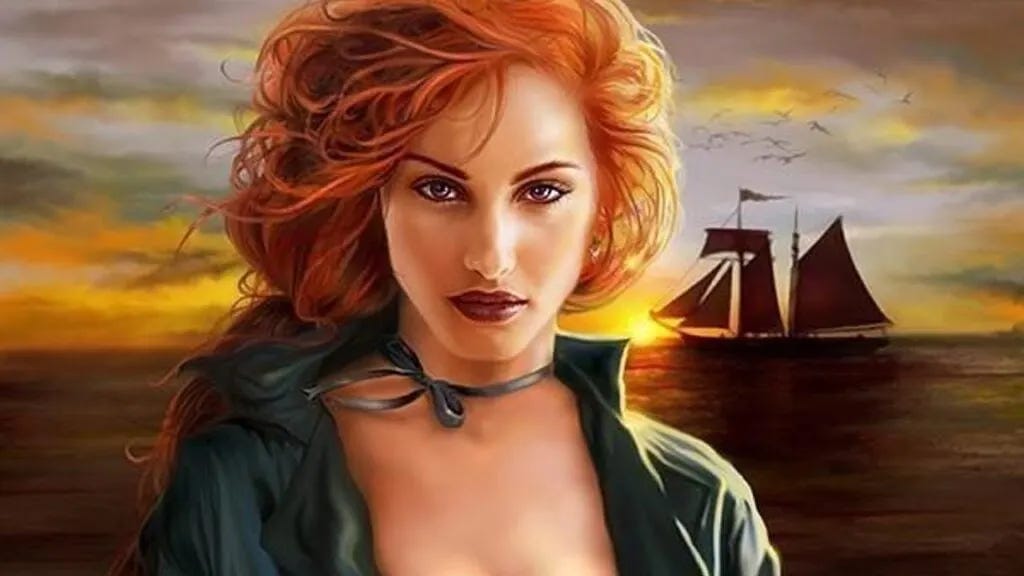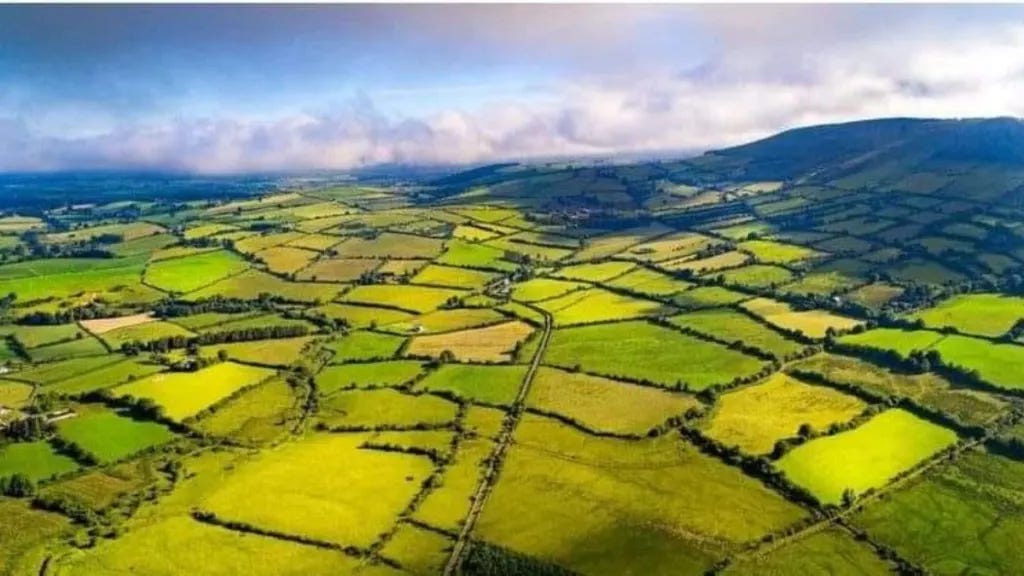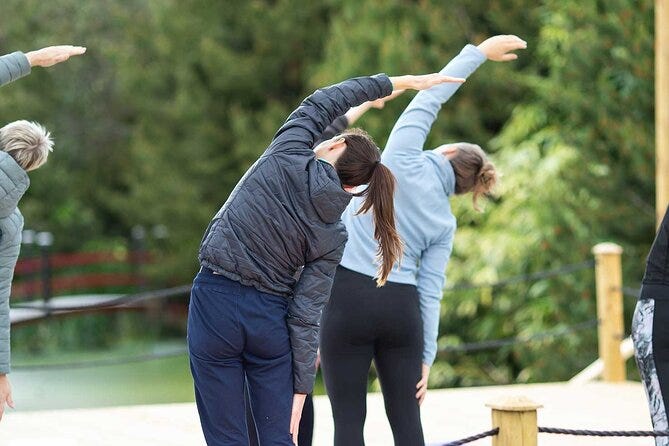Irish Women Everyone Should Celebrate
This article delves into the lives of three influential Irish women who have left an indelible mark on Irish culture and history: Queen Maeve, Molly Malone, and Grace O’Malley. Through their bravery in battle (Queen Maeve), their beauty (Molly Malone), and their negotiating prowess and resilience (Grace O’Malley), these women have each contributed significantly to the fabric of Irish society. Here, we explore their stories and the reasons they are still celebrated today.
Queen Maeve
Queen Maeve (Maeve Ní Máille) was an ancient Irish queen renowned for her ruthless battle strategies and leadership during the Iron Age in what is now County Sligo. Celebrated as the greatest warrior queen of ancient Ireland, her exploits are famously commemorated in the epic Táin Bó Cúailnge. Maeve is remembered as a complex figure, both revered as a protector and feared for her ambition to conquer all of Ireland. Her legacy continues in stories, songs, and folklore.
Maeve's unique leadership style was characterised by her determination and courage. A master strategist, she consistently outwitted her opponents with clever tactics. The Ulster Cycle stories portray her as an unstoppable force in combat. Despite her warrior persona, Maeve also appreciated beauty and peace, known for her generosity and hospitality towards loyal subjects, though she was unmerciful with enemies. Her enduring legacy inspires many to emulate her strength and ambition.
Molly Malone
Molly Malone is an iconic figure from a traditional Irish ballad, symbolising Dublin city life. The ballad tells of a beautiful girl who sold shellfish on the streets and died young of a fever, later buried in Dublin’s St James’ cemetery. Today, Molly Malone is an unofficial mascot of Dublin, with her statue a prominent feature in the city.
Her statue is often dressed for special occasions such as St. Patrick’s Day and the Guinness Dublin Literary Pub Crawl. Several pubs in Dublin bear her name, reinforcing her status as an enduring symbol of the city’s history and culture. The lyrics to "Molly Malone" reflect Dublin’s hardworking and good-hearted citizens: “In Dublin’s fair city/Where the girls are so pretty/I first set my eyes on sweet Molly Malone/As she wheeled her wheelbarrow/Through streets broad and narrow/Crying cockles and mussels alive, alive, oh!” This song is a cheerful reminder of the city’s colourful past.
Molly Malone remains a significant part of Dublin’s history and culture. When visiting Ireland’s capital, be sure to find her statue—a tribute to the city’s industrious spirit and enduring love of life.
Grace O’Malley (Grainne Ní Mhaille)
Grace O’Malley (Grainne Ní Mhaille) was a 16th-century Irish chieftain and one of the most powerful women in Irish history. She led a fleet of ships to protect her lands from English invasions and was known for her fierce negotiating skills, securing several advantageous agreements with the English crown.
Commanding a fleet of over 30 ships, O’Malley was a skilled sailor, often leading her fleets into battle. Her influence was so significant that she was granted an audience with Queen Elizabeth I in 1593, during which she successfully negotiated the release of her clan members captured by the English.
Grace O’Malley’s legacy is celebrated by various organisations, including the National Maritime Museum in Galway, UNESCO, and the Irish Navy. These institutions preserve her memory, ensuring that Grace O’Malley is remembered as an influential leader in Irish history.
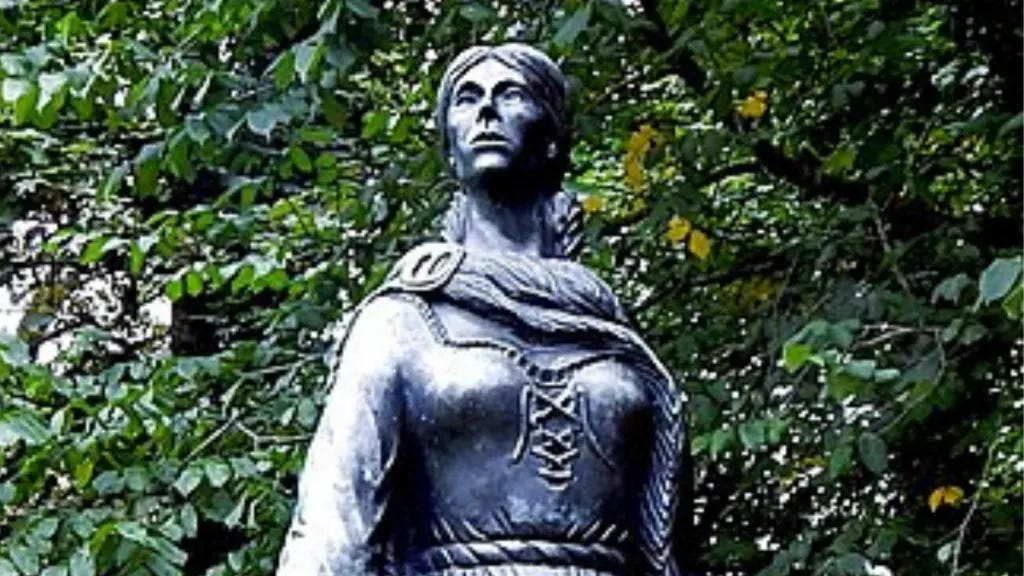
These three women have made significant impacts on Irish culture and history, captivating people to this day. Queen Maeve’s courage, Molly Malone’s beauty, and Grace O’Malley’s resilience exemplify the strength of Irish women throughout history. They stand as powerful symbols of the determination and power of women. Whether a native or a visitor, learning about these remarkable Irish women is well worth the time.
How would you like to learn more about these woman whilst nourishing your body and soul?
This Warrior Women Retreat in the west of Ireland is designed to help unleash inner strength, resilience and courage. Participants will stay in beautiful and tranquil accommodations, from the 700-year-old Temple House hotel to the charming Grace O’Malley Bed & Breakfast on Clare Island in Clew Bay.




